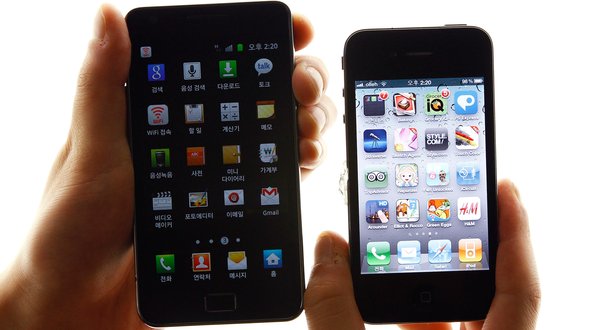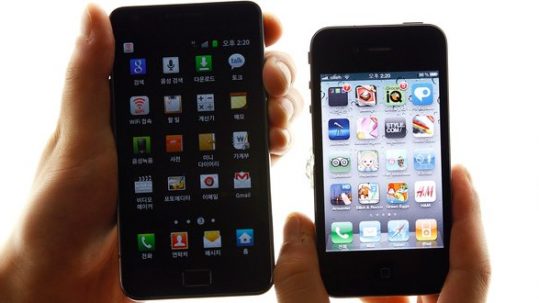
25 Aug Apple wins decision against samsung in patent case
Apple won a decisive victory on Friday in a lawsuit against Samsung, a verdict that will give Apple ammunition in a far-flung patent war with its global competitors in the smartphone business.
The nine jurors in the case, who faced the daunting task of answering more than 700 questions on sometimes highly technical matters, returned a verdict after just three days of deliberations at a federal courthouse in San Jose, Calif. They found that Samsung infringed on a series of Apple’s patents on mobile devices, awarding Apple more than $1 billion in damages.
That is not a big financial blow to Samsung, one of the world’s largest electronics companies. But the decision was closely watched because it could help shape the balance of power in the growing smartphone and tablet computer business. It could also give Apple a tool it can use to more aggressively protect its innovations from a fleet of rivals flooding the market with competing devices.
While Apple received far less than the $2.5 billion it had asked for in the trial, lawyers said there was little question which side won. “This is a huge victory for Apple,” said Mark Lemley, a law professor at Stanford University.
The jury found that various Samsung products violated Apple patents covering things like the “bounce back” effect when a user scrolls to the end of a list on the iPhone and iPad, and the pinch-to-zoom gesture that users make when they want to magnify an image. Samsung was also found to have infringed Apple patents covering the physical design of the iPhone.
In its decision on a countersuit by Samsung, the jury added some sting by finding in favor of Apple across the board. Samsung had asked for more than $422 million from Apple, contending it had violated Samsung’s patents, but got nothing.
Despite the eye-popping award, the more important long-term effect of the jury’s decision could be the impact it has on Android, the Google operating system used by Samsung and a broad array of other companies in their devices. For every iPhone sold worldwide, more than three smartphones running Android are sold, reflecting the meteoric rise of Google’s software and a potential threat to Apple.
Apple’s suit against Samsung, the largest maker of smartphones in the world, has partly been viewed as a proxy war against Google, which Apple executives have derided as a copycat, swiping Apple’s innovations. Steven P. Jobs, the late chief executive of Apple, told his biographer that Android was a “stolen product.”
Read More on the New York Times


